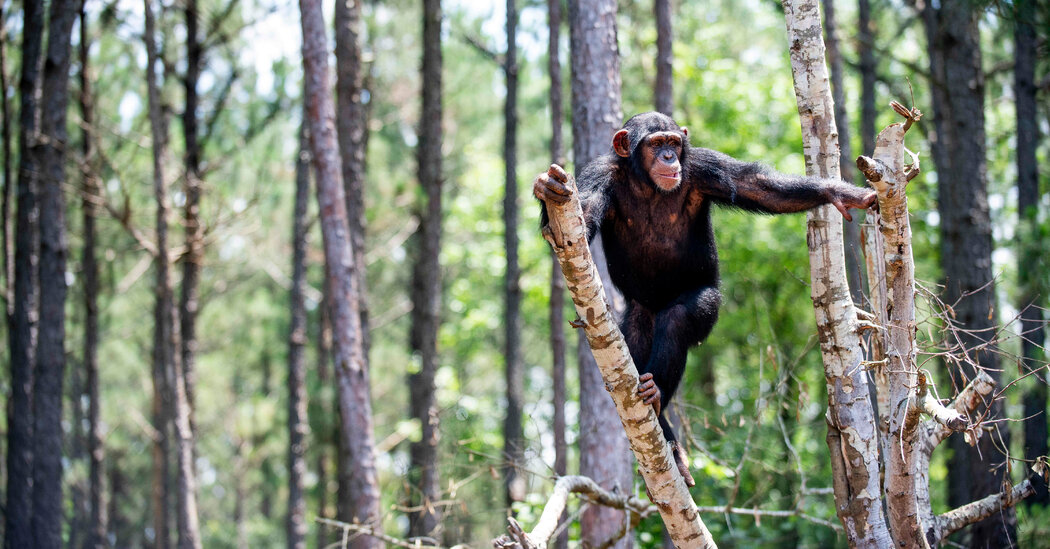The National Institutes of Health, which owns the chimps at the Alamogordo Primate Facility in New Mexico, has no plans to move the animals to sanctuary, despite a ruling from a federal judge.
It has been more than two decades since chimpanzee research came to a halt at the Alamogordo Primate Facility in New Mexico. And yet, some two dozen chimps still live there, despite a federal law that requires such retired research chimps to be moved to sanctuary.
In 2022, a judge ruled that the National Institutes of Health, which owns the chimps, was violating the law by refusing to move the animals to a wooded sanctuary in Louisiana. Earlier this year, the agency dropped its appeal of the ruling.
But the N.I.H. says it has no immediate plans to move the animals, citing concerns about the animals’ health — and a legal footnote that may exempt the agency from moving chimps that are “moribund,” a term that typically means near death.
As of last October, 28 chimps remained at Alamogordo, all of whom were moribund, the N.I.H. said in an email. It defined moribund as suffering from “life-threatening, systemic disease that poses a constant threat and could result in abrupt death.”
Some of the animals had previously been diagnosed with advanced cardiovascular disease, which is common in older chimps.
The N.I.H.’s refusal to transfer the chimps has drawn criticism from lawmakers, veterinarians and animal rights advocates.
